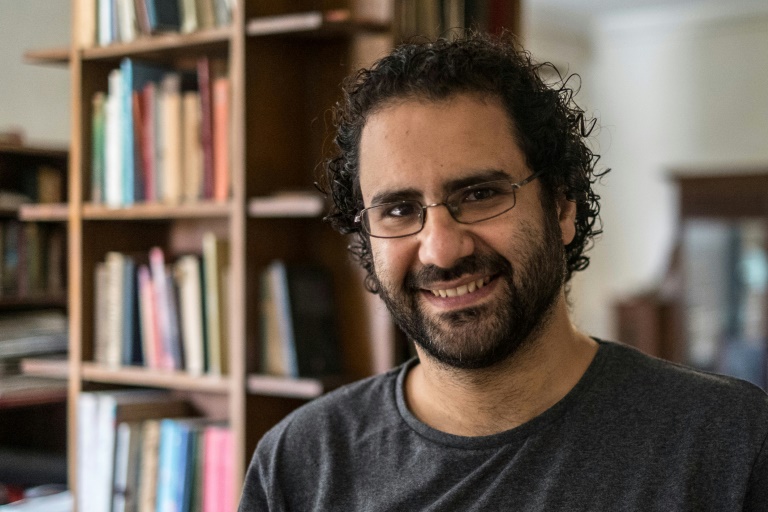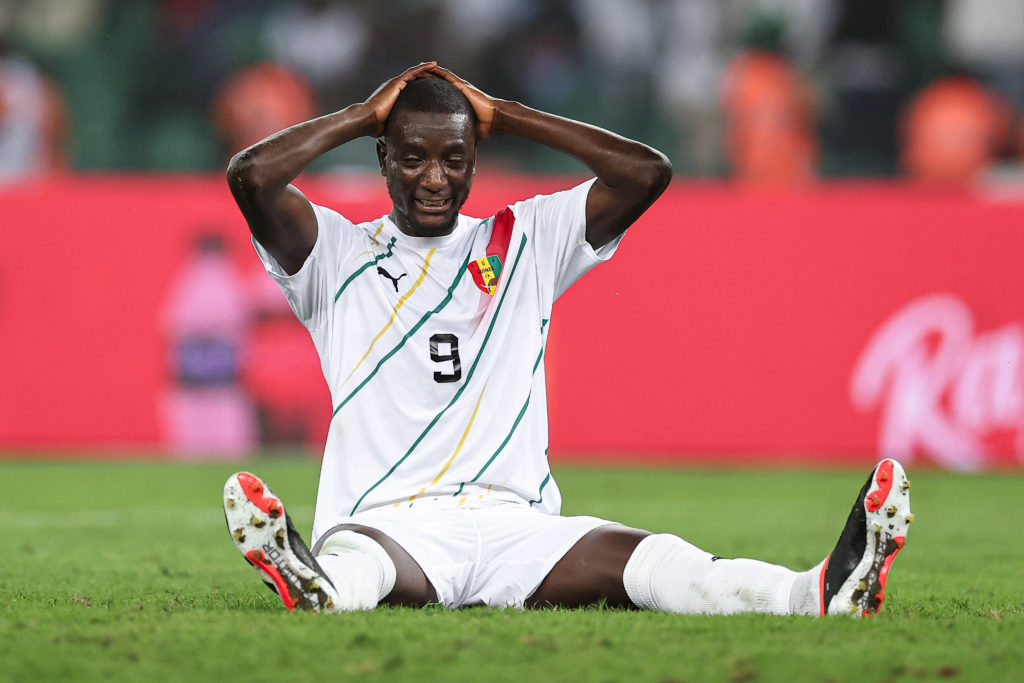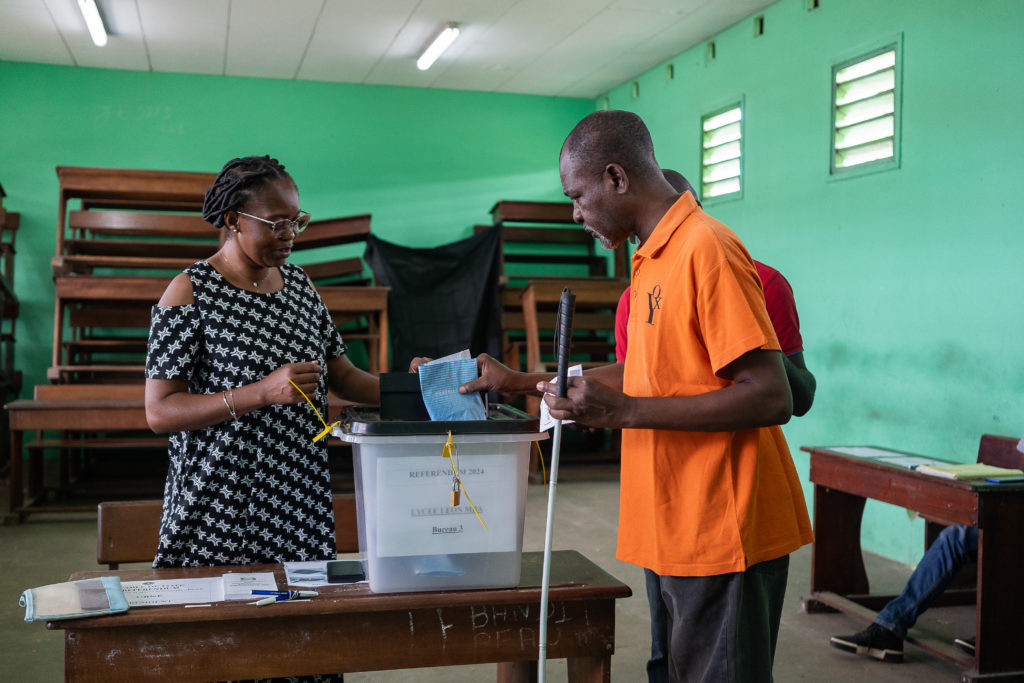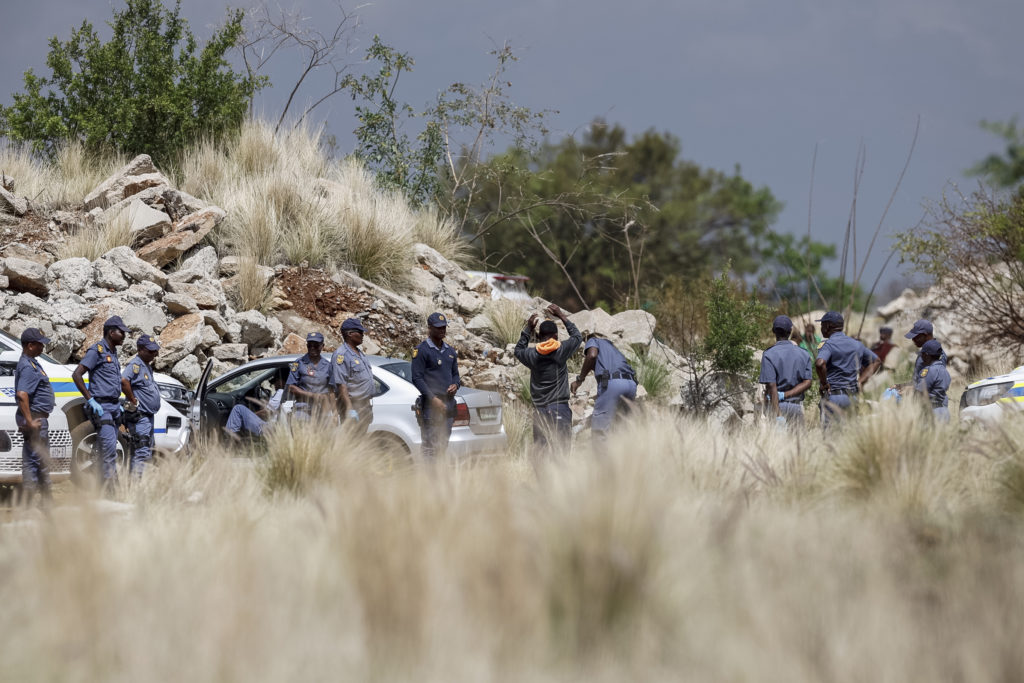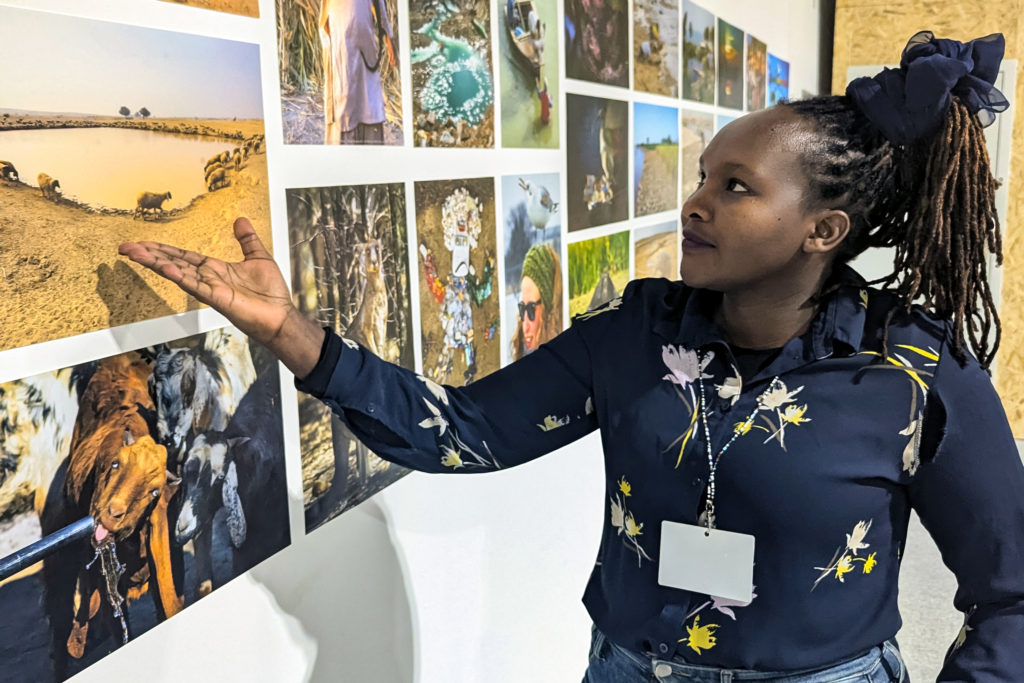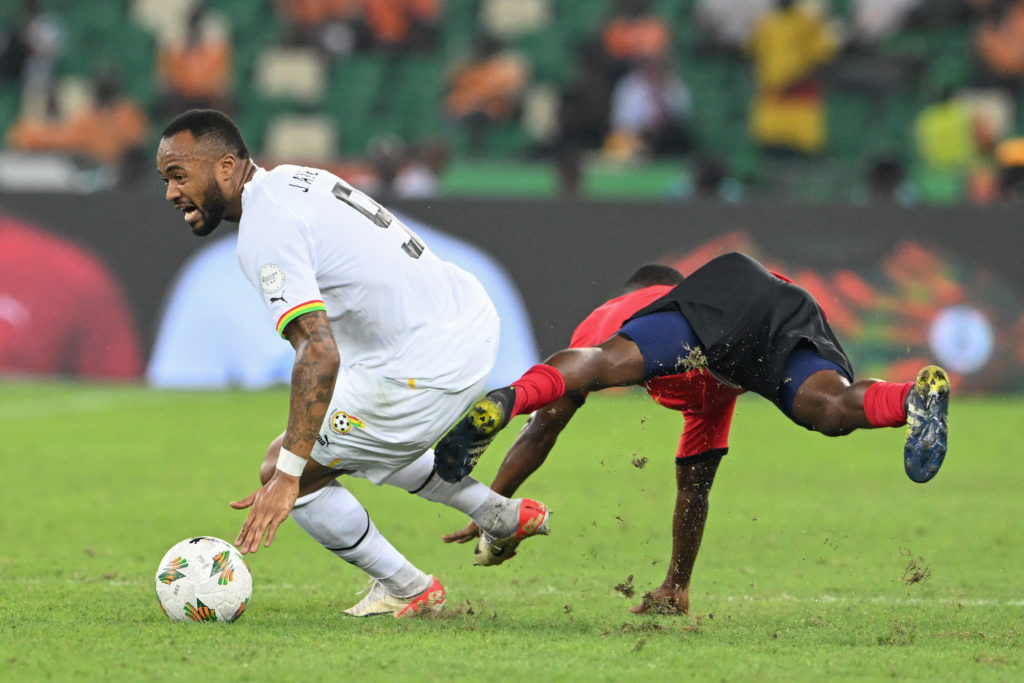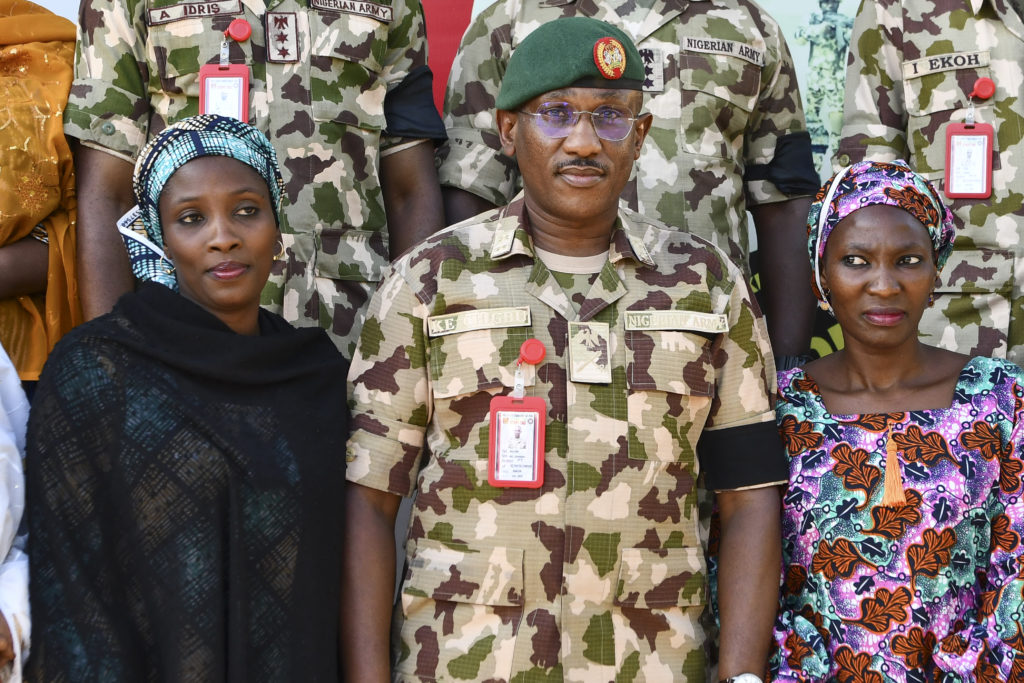Jailed Egyptian activist and blogger Alaa Abdel Fattah is pictured at his home in Cairo on May 17, 2019
Britain and France on Monday raised the case of a dissident hunger striker with Egypt’s President Abdel Fattah Al-Sisi, a day after the jailed activist started refusing water.
Alaa Abdel Fattah, a British-Egyptian, stopped drinking water on Sunday to coincide with the opening of the COP27 climate summit in Egypt.
British Prime Minister Rishi Sunak and French President Emmanuel Macron both met directly with Sisi and upped the pressure for his release, hours after three Egyptian journalists said they had begun their own hunger strikes over his fate.
Egyptian journalist Mona Selim told AFP during a sit-in at the journalists’ union in Cairo that she and two colleagues had “stopped eating now because Alaa Abdel Fattah is in danger of dying”.
She was speaking alongside Eman Ouf and Racha Azab, the two colleagues who have gone on hunger strike with her.
Selim said that the three are also demanding the “liberation of all prisoners of conscience” in Egypt.
Such prisoners number more than 60,000 in Egypt, according to rights groups — jailed under the rule of Sisi, who deposed Islamist president Mohamed Morsi in 2013, before being elected the following year.
After a seven-month hunger strike during which he consumed only “100 calories a day”, Abdel Fattah has refused food altogether since last Tuesday.
On Sunday he launched his “water strike”, said his sister Sanaa Seif, who on Monday travelled to Egypt’s Red Sea resort of Sharm el-Sheikh, where world leaders have gathered for the COP27.
– ‘Not a lot of time’ –
Sunak has said Abdel Fattah’s plight is “a priority”, and met with the Egyptian president on Monday.
“The Prime Minister said he hoped to see this resolved as soon as possible and would continue to press for progress,” a spokesman for Sunak said, adding he had stressed “the UK Government’s deep concern on this issue”.
Macron said he received an assurance from Sisi that the Egyptian president was “committed to ensuring that (the) health of Alaa Abdel Fattah is preserved”.
Egypt’s Foreign Minister Sameh Shoukry, the COP27 president, told CNBC television that Abdel Fattah had “all the necessary care in prison”.
Activists at COP27 have posted prolifically on Twitter under the hashtag #FreeAlaa and several speakers have ended their speeches with the words “you have not yet been defeated” — the title of his book, prefaced by Canadian author Naomi Klein.
“There is not a lot of time — 72 hours at best,” Amnesty International chief Agnes Callamard said in Cairo on Sunday, referring to Alaa Abdel Fattah’s possible remaining lifespan.
She urged Egypt to release him and said that, “if they don’t, that death will be in every single discussion in this COP”.
Abdel Fattah has since late last year been serving a five-year sentence for “broadcasting false news”, having already spent much of the past decade behind bars.
In Lebanon’s capital Beirut, around 100 people protested against his detention near the British embassy, an AFP photographer reported.
Abdel Fattah “embodies the Arab world’s fight against repressive authorities in the past 12-13 years,” said journalist Diana Moukalled.
“We are gathering today to raise our voice and demand the release of Alaa and thousands of other political detainees in Egypt and other Arab countries,” she said.
Abdel Fattah’s continued detention comes despite Egypt having granted presidential pardons to a total of 766 political prisoners since the reactivation of a pardon policy in April this year, according to data compiled by Amnesty.
But over this period 1,540 political dissidents have also been put behind bars, Amnesty says.
The group Reporters Without Borders, in its 2022 World Press Freedom Index, ranked Egypt 168 out of 180 countries.

